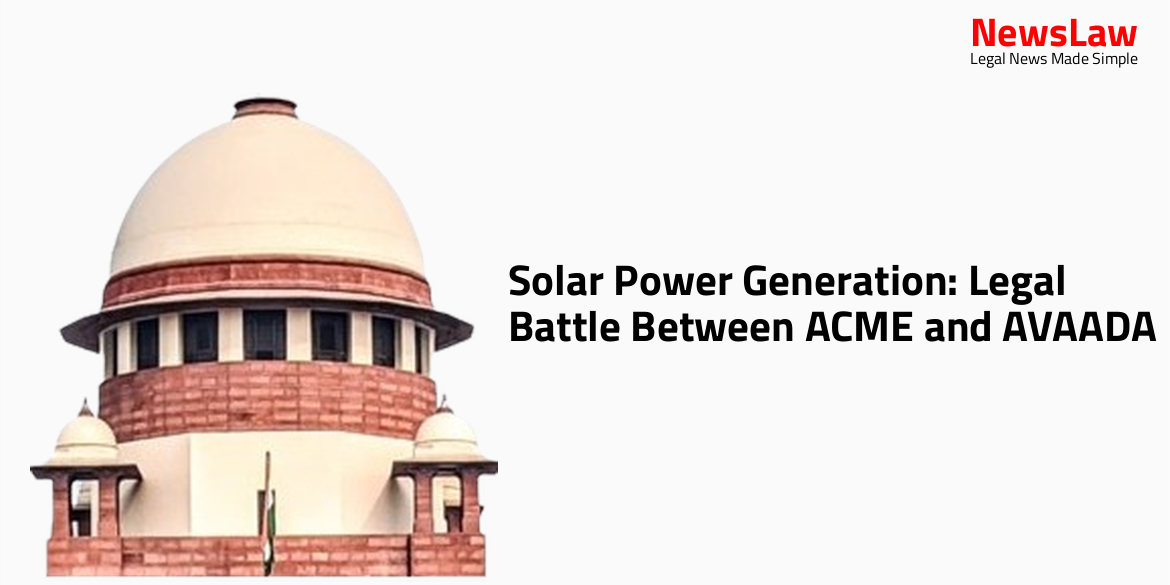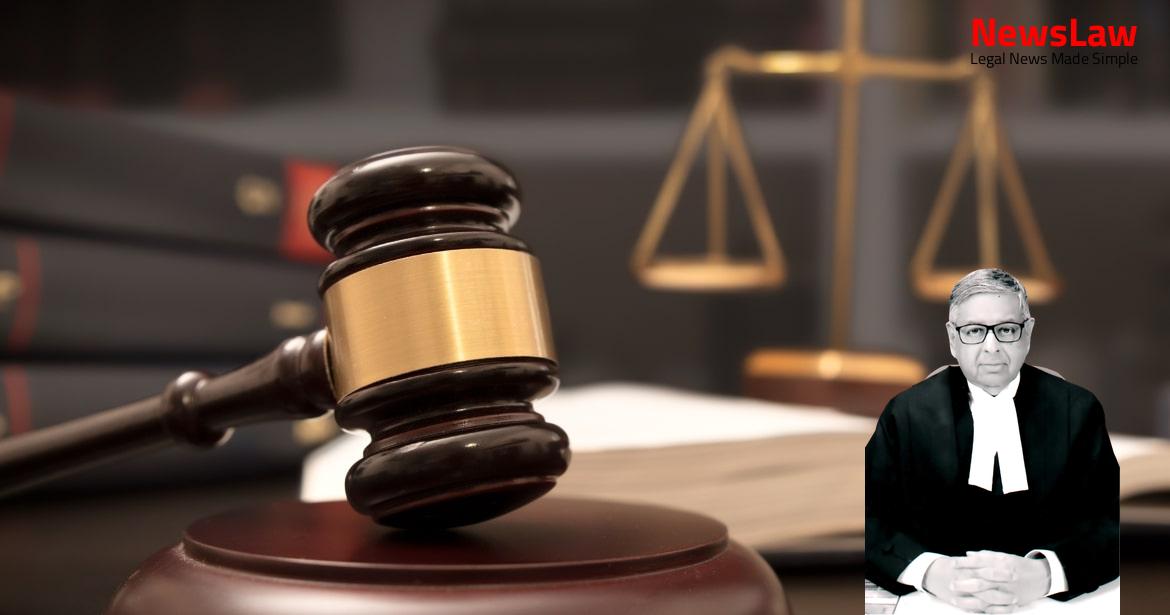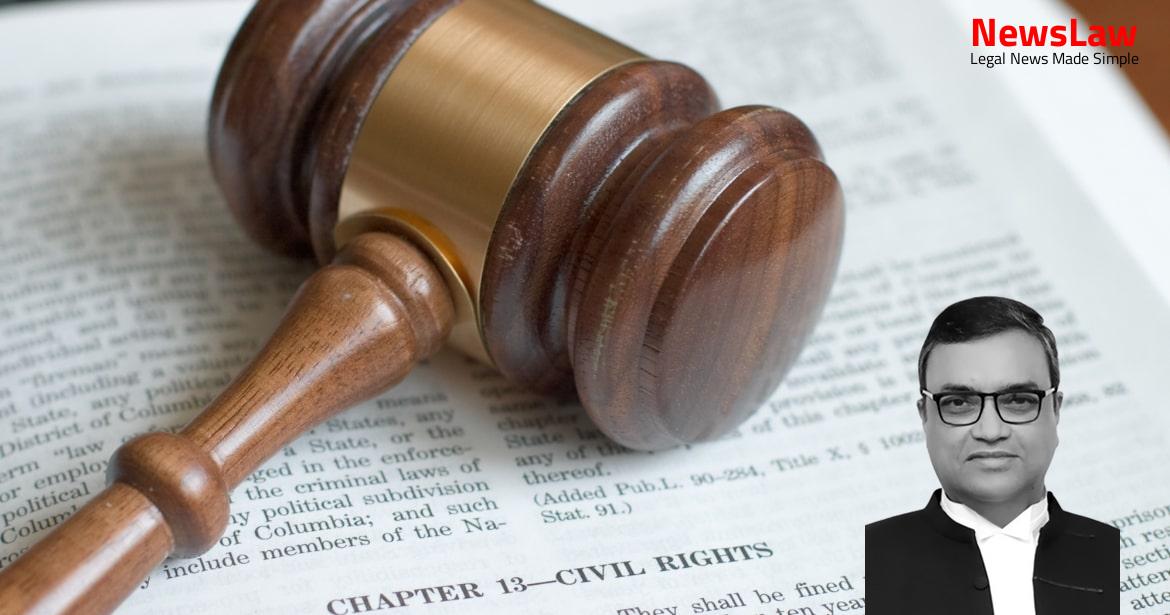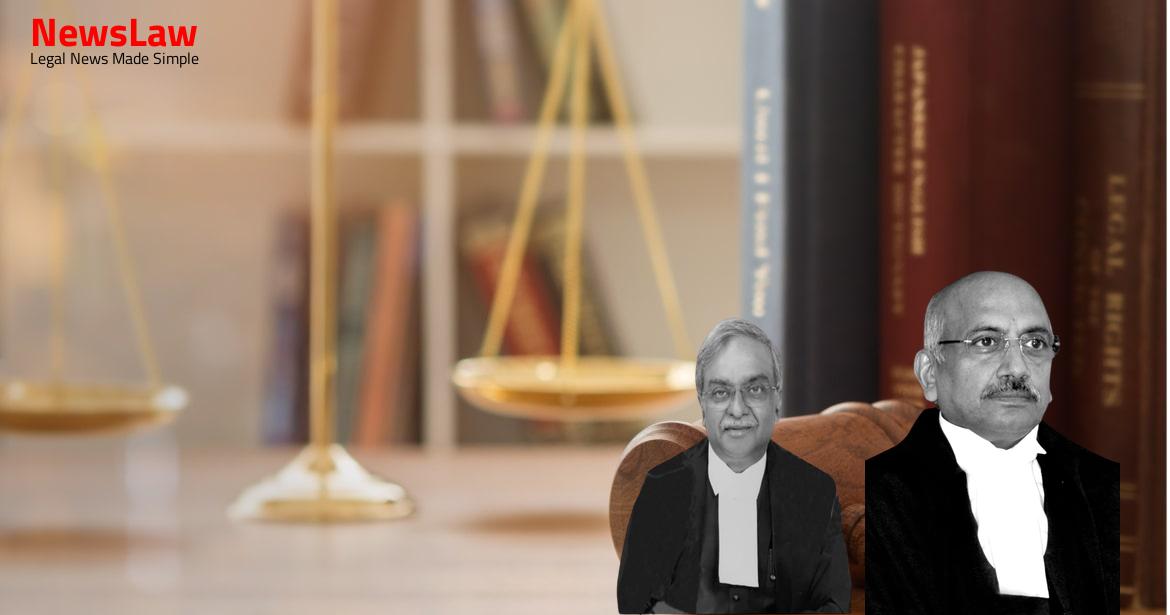The Delhi High Court is currently presiding over a significant legal dispute between ACME and AVAADA concerning solar power generation. This case delves into the interpretation of Sections 61 and 65 of the Act, highlighting implications for the solar power industry. With arguments on both sides challenging the cancellation of licenses and promoting the inclusion of solar power projects, the court’s decision could have far-reaching implications. Stay informed on this pivotal case as key legal principles intersect with renewable energy initiatives.
Facts
- The Facilitation of Accelerated Clearance (FAC) Rules, 2021 have been discussed in detail.
- The impugned Instruction issued by the Central Board of Indirect Taxes and Customs is found to be in conflict with the FAC Rules, 2021.
- The FAC Rules, 2021 aim to facilitate the speedy clearance of goods and provide certain benefits to importers.
- The impugned Instruction undermines the purpose and benefits intended by the FAC Rules, 2021.
- The conflict between the impugned Instruction and the FAC Rules, 2021 raises serious concerns about the legality and validity of the former.
- The importance of upholding the legal framework established by the FAC Rules, 2021 for efficient and effective customs clearance processes is highlighted.
- Imposition of BCD in 2022-23 led to a reduction in imports overall.
- However, there was an increase in import of solar modules in 2023-24.
- The data on import of solar modules is shown in the chart provided.
Issue
- The main issue in this part of the judgment is whether the Circular issued by the respondents can be considered a revenue legislation for imposing excise duty.
- The suitability of the suits being related to the recovery of possession of immovable property situated in Greater Bombay is also being questioned.
- The interpretation of Section 37-B of the Act is analyzed to determine its applicability.
- The key question is whether the dominant purpose test or the theory of apportionment should be applied in interpreting Section 14-A of the Act.
- The dispute revolves around the interpretation of the term ‘in relation to’ when dividend income from shares is earned without the primary purpose being to earn dividends.
Arguments
- Mr. Ghosh contended that the grant of a license under the MOOWR Regulations must be held to be a judicial act.
- The cancellation of a license would also be liable to be viewed as a judicial act as it requires an inquiry and investigation in consonance with the principles of natural justice.
- The opportunity to warehouse goods until clearance or consumption was not given to the petitioner, making the cancellation of their license invalid and void.
- The Union Budget 2023-24 excluded solar power plants and projects from the purview of Project Imports.
- The ASG argued that Section 57 enables licensing of a public warehouse for dutiable goods to be stored.
- The undisputed fact was that the writ petitioners had imported solar cells and panels as capital goods into India.
- The diction ‘warehoused goods’ as per Section 65 does not include sunlight as ‘imported goods’ or ‘warehoused goods’ as defined in the Act.
- The phrase ‘in relation to’ in Section 65 was discussed with respect to ‘manufacturing process or other operations’.
- The obligation to act judicially requires a decision to conform to an objective standard recognized by law, allowing external testing of the determination.
- The tests for a judicial act as per Jaswant Sugar Mills Ltd v. Lakshmi Chand & Ors case were cited by Mr. Ghosh.
- A decision under the Act must involve an investigation and the obligation to act judicially would require the determination to be based on findings derived from questions of law and fact.
- Sections 61 and 65 or the MOOWR Regulations were not stated to prescribe an outer time limit for duty deferral.
- The decision-making by an authority must adhere to the requirements of natural justice and statutory laws to qualify as quasi-judicial.
- The ASG mentioned that ‘in relation to’ must be construed broadly in terms of the Act.
- The grant of a MOOWR license was considered a judicial function by Mr. Ghosh.
- The MOOWR Regulations were not restricted to raw materials alone, allowing all types of warehoused goods.
- The capital goods imported must undergo manufacture or operations in the warehouse to benefit from Section 65.
- The MOOWR Regulations do not exclude any industry from their operation, including solar power.
- The implications of the cancellation of licenses on solar power projects were discussed.
- The high Court may grant a writ of certiorari on a denial of natural justice even if alternative remedies are available.
- Mr. Ghosh submitted that the apprehension of ACME and AVAADA is supported by the issuance of Show Cause Notices proposing to cancel their licenses.
- He questioned the interpretation of Sections 61 and 65 of the Act by the learned ASG and presented additional contentions.
- Mr. Ghosh argued that solar power generation should be considered a permissible activity under Section 65 of the Act.
- He emphasized that the statute does not exclude the generation of electricity from Section 65, making the respondents’ stand untenable.
- Mr. Ghosh referred to previous court decisions supporting the view that injunction suits can relate to the possession of immovable property.
- He highlighted schemes launched to reserve a percentage of project bids for domestically manufactured solar cells and modules.
- The petitioners argued that both the Act and MOOWR Regulations do not exclude solar power generation.
- Mr. Ghosh insisted that the scope and ambit of the Act and MOOWR Regulations should be authoritatively ruled upon regarding solar power generation.
- He noted the cancellation of a license in a related case before expanding on the legality of the impugned Instruction.
- Mr. Ghosh challenged the understanding of Sections 61 and 65 of the Act by the respondents and argued for rejecting their interpretation.
- He concluded by arguing that capital goods can remain warehoused until ultimately cleared, contrasting this with goods other than capital goods.
Analysis
- The licensee is required to remove goods from the warehouse for export upon filing a shipping bill or a bill of export.
- A one-time-lock must be affixed to the load compartment of the means of transport for goods being removed from the warehouse.
- The licensee is obligated to maintain a record of the goods removed from the warehouse.
- Section 68 of the Act governs the clearance of warehoused goods for home consumption, specifying the requirements for clearance.
- The Act empowers the Principal Commissioner of Customs or Commissioner of Customs to grant permission for manufacturing processes or other operations in relation to warehoused goods.
- The Act also lays down the period for which goods may remain warehoused depending on their nature.
- Section 151A authorizes the Board to issue orders for achieving uniformity in the classification of goods and duty levy.
- Regulations such as MOOWR Regulations cover aspects like transfer of goods, validity of permissions, and eligibility criteria for operating under the regulations.
- The Act also provides for the cancellation of licenses in case of contravention or breach of conditions.
- Interest may be payable on warehoused goods in certain circumstances as outlined in the Act and Regulations.
- In the case involving Original Name vs. General Electric Co., the term ‘relating to’ was defined by Tulzapurkar, J. as per the relevant authorities.
- India’s policy initiatives and measures taken to fulfill treaty obligations were highlighted in the decision of M K Ranjitsinh & Ors vs Union of India & Ors.
- The courts consider the spirit of the law when interpreting language that allows for broad constructions, especially in provisions designed to prevent tax evasion.
- Circulars issued by authorities bind officers in their administrative roles but not when acting in a quasi-judicial capacity.
- Quasi-judicial functions cannot be controlled by executive actions through circulars.
- The court must give effect to clear legislative language, even if the outcome seems unjust, unless a just result can be achieved without violating the statute’s purpose.
- India’s efforts to shift to solar power are highlighted due to impending issues and the need for sustainable energy solutions, especially for the least Developed Countries and Small Island Developing States.
- The UN has outlined human rights obligations related to climate change and environmental protection.
- The right to a healthy environment is recognized as a fundamental human right that intersects with various other rights domains.
- Mitigating climate change impacts, transitioning to cleaner energy sources, and protecting vulnerable communities are essential for sustainable development.
- Solar energy plays a crucial role in addressing environmental challenges, reducing pollution, and ensuring energy security.
- Courts must uphold legislative intent based on clear language, and should not depart from literal interpretation unless necessary to avoid absurdity or injustice.
- Judicial restraint and adherence to statutory language are emphasized, especially in interpreting tax statutes and quasi-judicial functions.
- Enforcement of environmental protection laws and promoting renewable energy align with global efforts to combat climate change and ensure a healthier environment.
- Promoting solar power initiatives contributes to sustainable growth, energy security, and reducing environmental impact.
- Access to clean and sustainable energy, particularly solar power, is crucial for improving living standards, reducing pollution, and fostering economic activities.
- Recreating or reassembling Section 65 to exclude a particular category of activity based on its negative impact on domestic industry is wholly incorrect.
- Court will not deploy principles of purposive interpretation to correct perceived anomalies in solar power generation impacting local generators.
- Issues related to policy and introducing conditions of ineligibility cannot be addressed through statutory interpretation.
Decision
- The Instruction of the Board dated 09 July 2022 mandating review of existing licences and follow-up action has been quashed.
- Detailed orders were passed on 04 August 2023 in response to an Application for Directions (C.M. 36603/2023).
- The operation of the impugned Show Cause Notice (SCN) was stayed and confirmed during the pendency of the writ petition on 26 August 2022.
- The present writ petitions have been allowed based on the aforementioned reasons.
- In W.P. (C) 10838/2022, an amendment application was moved by the petitioner, which led to the quashing of the SCN.
- W.P.(C) 12386/2022 shall stand at 179 as per the Final Determination 180.
- The respective parties are directed to proceed further as per the issued directions on this batch of cases.
Case Title: ACME HEERGARH POWERTECH PRIVATE LIMITED Vs. ASSISTANT COMMISSIONER OF CUSTOMS, ICD CONCOR, JODHPUR & ANR. (2024:DHC:3615-DB)
Case Number: W.P.(C)-12386/2022



